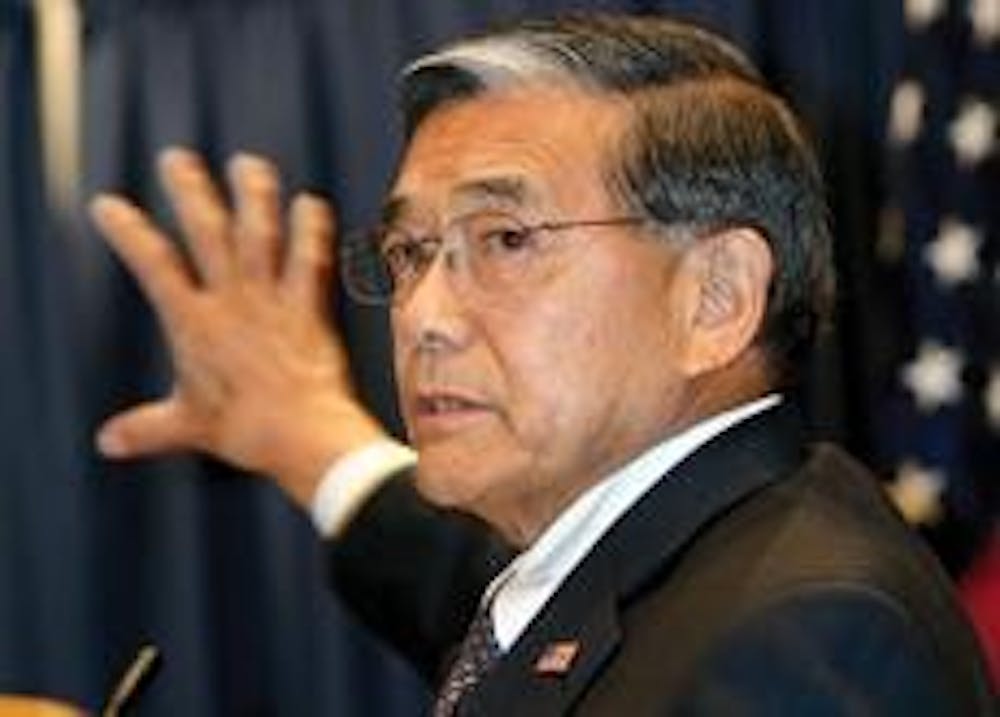Former Secretary of Transportation Norman Mineta recounted his time in Japanese internment camps during World War II but shied away from comparisons between those camps and the current situation at Guantanamo Bay during a speech at the Kay Spritual Life Center Monday night.
"No one interned during World War II had any kind of criminal record or charges," he said.
Mineta discussed these topics and others, including bipartisan politics and the war in Iraq, at the first of the Kennedy Political Union's 2006-2007 series of lectures.
Mineta had advice for politically active students in the country about the nature of partisanship.
"While there is nothing wrong with feeling that a party's principles are what you believe in, partisanship today has a sharp edge," Mineta said. "More and more people are getting turned off to the political process, and that is something we cannot afford."
Taylor Robinson, KPU director and junior in the School of Public Affairs, said Mineta offered a personal and private take on immigration and how public policy affects the individual.
"I'm proud of the fact that we started the year with a speaker who is a storyteller," she said.
Rachel Birkhahn-Rommelfanger, a junior in the College of Arts and Sciences, said she was particularly taken by his "testimony of struggle, and how he was able to make it to such high reaches of government" from a starting point as an outcast.
However, David Grossman, a sophomore in SPA, said he thought Mineta "spoke like a Secretary of Transportation - knowledgeable but boring."
Grossman said he wished Mineta had talked more about current events than his family history.
While Mineta praised President Bush for his treatment of Arab-Americans and for placing a ban on racial profiling, he said the veracity of information conveyed to the public in the early stages of the current Iraq War might someday require a formal apology.
The precedent for this is the Civil Liberties Act of 1988, the piece of legislation of which Mineta said he is most proud. The bill, signed into law by former President Reagan, admitted U.S. wrongdoing in the Japanese internment and made redress by awarding $20,000 to every survivor of the camps.
"Japanese-Americans felt a yoke of shame about their being," which was lifted by the apology, Mineta said.
"To have a government admit they are wrong and to make amends for it is a testament to the strength of our nation," he said.





